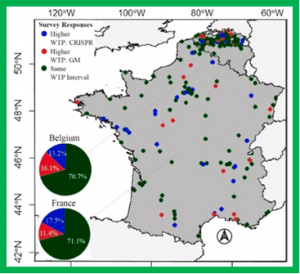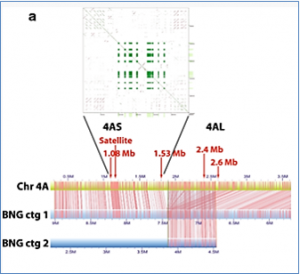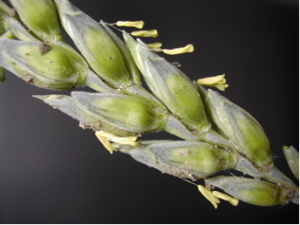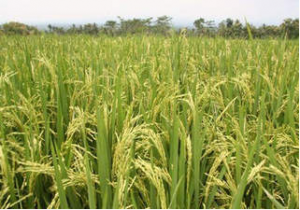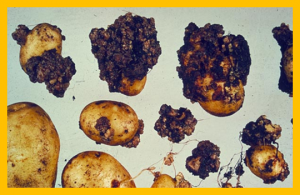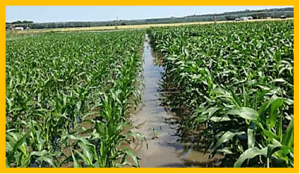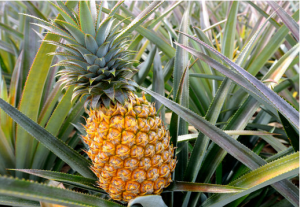CRISPR gene-editing has major implications for agriculture and food security. However, no studies have evaluated the public acceptance and valuation of CRISPR-produced food. As such, we conducted a multi-country assessment of consumers’ willingness-to-consume (WTC) and willingness-to-pay (WTP) for CRISPR-produced food compared to conventional and genetically modified (GM) foods, respectively. In the USA, Canada, Belgium, France, and Australia
Past research suggested that wheat chromosome 4A was subjected to a reciprocal translocation T(4AL;5AL)1 that occurred in the diploid progenitor of the wheat A subgenome and to three major rearrangements that occurred in polyploid wheat: pericentric inversion Inv(4AS;4AL)1, paracentric inversion Inv(4AL;4AL)1, and reciprocal translocation T(4AL;7BS)1. Gene collinearity along the pseudomolecules of tetraploid wild emmer wheat (Triticum turgidumssp. dicoccoides, subgenomes AABB) and diploid Aegilops tauschii (genomes DD) was employed to confirm these rearrangements and to analyze the breakpoints.
This paper presents a new heuristic method for phasing and imputation of genomic data in diploid plant species. Our method, called AlphaPlantImpute, explicitly leverages features of plant breeding programmes to maximise the accuracy of imputation. The features are a small number of parents, which can be inbred and usually have high-density genomic data, and few recombinations separating parents and focal individuals genotyped at low density (i.e. descendants that are the imputation targets).
Heading date is one of the most important traits in wheat breeding as it affects adaptation and yield potential. A genome-wide association study (GWAS) using the 90 K iSelect SNP genotyping assay indicated that a total of 306 loci were significantly associated with heading and flowering dates in 13 environments in Chinese common wheat from the Yellow and Huai wheat region. Of these, 105 loci were significantly correlated with both heading and flowering dates and were found in clusters on chromosomes 2, 5, 6, and 7
Rice tungro disease (RTD) is one of the most important virus diseases of rice in South and Southeast Asia, which is caused by coinfection of rice tungro bacilliform virus (RTBV) and rice tungro spherical virus (RTSV). RF2a, encoding a bZIP type transcription factor, which is important for rice development is reported to bind to Box II, a crucial cis-element of the RTBV promoter and activate transcription from the RTBV promoter in infected plants. Overexpression of RF2a in transgenic rice had been reported to increase tolerance against the tungro virus
Synchytrium endobioticum causes potato wart disease imposing severe losses in potato production, and as a quarantine pathogen in many countries, it results in lost trade markets and land for potato cultivation. The resistance to S. endobioticum pathotype 1(D1) is widespread in potato cultivars but new virulent pathotypes appear and the problem re-emerges. To characterize and map a new gene for resistance to potato wart, we used diploid F1 potato population from a cross of potato clone resistant to S. endobioticum pathotype 1(D1) and virulent pathotypes:
Waterlogging stress seriously affects the growth and development of upland crops such as maize (Zea mays L.). However, the genetic basis of waterlogging tolerance in crop plants is largely unknown. Here, we identified genetic loci for waterlogging tolerance-related traits by conducting a genome-wide association study using maize phenotypes evaluated in the greenhouse under waterlogging stress and normal conditions.
There have been strong interests in producing unusual fatty acids in oilseed crops to provide renewable industrial feedstock. Results are so far largely disappointing since much lower amounts of such fatty acids accumulate in genetically engineered seeds than in their original natural sources. It has been suggested that the flux of unusual fatty acids through phosphatidylcholine (PC) represents a major bottleneck for high accumulation of such fatty acids in triacylglycerol (TAG).
The CRISPR/Cas9 genome editing system has already proved its efficiency, versatility and simplicity in numerous applications in human, animal, microbe and plant cells. Together with the vast amount of genome and transcriptome databases available, it represents an enormous potential for plant breeding and research. Although most changes produced with CRISPR/Cas9 do not differ from naturally occurring mutations, the use of transgenesis during varietal development can still trigger GMO legislation in countries that rely on process-based regulation.
An efficient transformation protocol is a primary requisite to study and utilize the genetic potential of any plant species. A quick transformation system is also crucial for the functional analysis of genes along with the study of proteins and their interactions in vivo. Presently, however, quick and effective transformation systems are still lacking for many plant species including pineapple. This has limited the full exploration of the genetic repository of pineapple as well as the study of its genes, protein localization and protein interactions.


 Curently online :
Curently online :
 Total visitors :
Total visitors :
